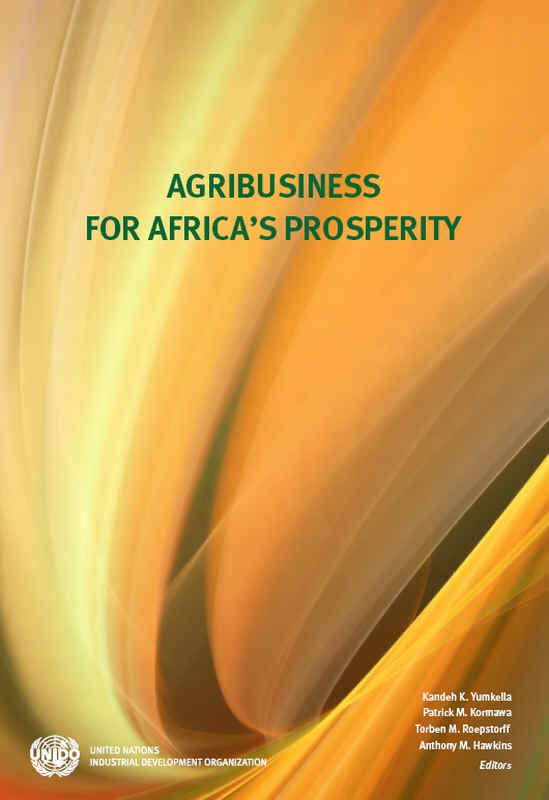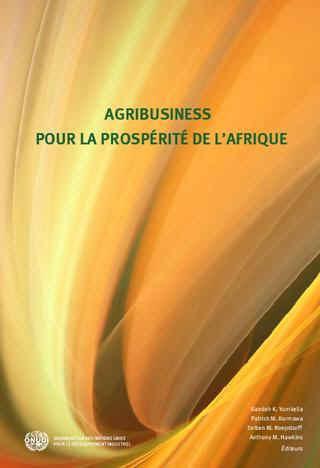Info Allgemein
Globaler Technologietransfer – Was kann Afrika gewinnen?: In einem Vortrag anlässlich der Eröffnung der Tagung „Afrikanische Perspektiven: Was kann Afrika gewinnen“ referierte Professor Karl Wohlmuth über die verschiedenen Kanäle bzw. Wege des Technologietransfers nach Afrika. Eingegangen wurde insbesondere auch auf die heimische Absorption von ausländischen Technologien. Die Absorptionsbedingungen wurden in Bezug auf Innovations- und Technologieindikatoren für die drei Länder Ghana, Mali und Südafrika beleuchtet. Auf das Nationale Innovationssystem von Ruanda wurde eingegangen, da dieses Land dabei ist, die agro-industrielle Entwicklung konsequent auf der Basis von Wissenschaft, Technik und Innovation/Science, Technology and Innnovation (STI) auszurichten. Am Beispiel des Enabling Rural Innovation (ERI)-Programms wurde das Agrarinnovationssystem von Uganda dargestellt, um zu zeigen, welche konkreten Möglichkeiten es gibt, Produktion und Markt durch Innovationen besser aufeinander abzustimmen und so die ländliche Entwicklung zu fördern. Die neuen Ansätze der Koppelung bzw. parallelen Nutzung von verschiedenen Modernisierungsvarianten („Regenbogenstrategie“) wurden am Beispiel der Saatgutversorgung in afrikanischen Ländern erläutert. Abschließend wurde auf die Bedingungen eingegangen, um aus den Technologietransfers maximalen Nutzen zu ziehen.
In vier Arbeitsgruppen wurden spezielle Thematiken aus den Bereichen Energie/Desertec, Telekommunikation, Medizintechnik und Recycling behandelt. Der Workshop wurde vom BeN/Bremer entwicklungspolitisches Netzwerk e.V. veranstaltet (Link: http://www.ben-bremen.de/veranstaltungskalender/icalrepeat.detail/2012/06/29/419/). Eine Auswertung der Fachtagung ist vom BeN geplant. Die Reihe „Afrikanische Perspektiven“ wird in jährlicher Folge durchgeführt.
Die Präsentation von Professor Karl Wohlmuth liegt als PDF vor (Link).
The preliminary programme of the World Congress on Sudan Studies was just released (see details unter http://www.iwim.uni-bremen.de/files/dateien/1656_international_sudan_studies_conference_6_provisional_agenda_6_2012.pdf). The programme is composed of plenary sessions and parallel panel sessions. Various important issues of the two Sudan will be discussed with an interdisciplinary focus, and especially so the current political and economic developments in the two states of Sudan will be given attention by a great number of international scholars.
Some of the major issues discussed are: Economic Development of the Border States in Sudan and South Sudan; Border Politics; Old and New National Identities in the two Sudan; Language and Society; New Citizenship; Constitutions; Youth in the two Sudan; Peace and Peace-Building; Security Challenges; Land Issues; South Sudan in the Wider Region; Aid and Development; Economic Issues and Natural Resources; and Water Issues.
The conference is organised by leading researchers on the two Sudan from three research institutions/scientific societies: Dr. Elke Grawert, Bonn International Center for Conversion/BICC, Bonn for the German side, Douglas H. Johnson, Oxford University, for the Sudan Studies Society UK/ SSSUK, and Dr. Abdullahi A. Gallab, Arizona State University, for the Sudan Studies Association USA/SSA USA.
The programme - as it is regularly updated - will be accessible at: http://www.bicc.de/events/2012-2/international-sudan-and-south-sudan-studies-conference.html
A great number of participants from Sudan and South Sudan is also expected to come to Bonn. Because of the dramatic current problems and tensions between Sudan and the newly independent state of South Sudan a great interest of the international press is also expected.
In an essay Professor Karl Wohlmuth discusses three levels of action for promoting agriculture, agro-industry and agribusiness in Africa - the level of sectors and sub-sectors, the level of value chains and the level of competitive firms and products. It is shown that progress depends on strategies to create linkages between sectors, to integrate value chains and to convert comparative advantages into competitive positions. The role of Science, Technology and Innovation (STI) is relevant at all the three levels, and specific support strategies are proposed and recommended. STI is a major force which can be productively used also in low developed African countries. Although some African countries have made progress in linking agribusiness development and STI, like Rwanda, much more needs to be done at national, regional and sector levels.
The essay will be published in a long version (in the IWIM Blue Series Discussion Papers Number 124) and as a short version (in an edited volume on West African Fruits and Crops, based on a research project directed by Professor Hans-Heinrich Bass, Bremen University of Applied Sciences).
The "United States of Europe" and the Euro: Professor Karl Wohlmuth has submitted a paper at the Annual Conference of the Research Institute of the IWVWW on The "United States of Europe" A revival?. The conference was held at the Humboldt University in Berlin on May 11, 2012. The Research Institute is a partner institute of IWIM. In the conference contribution Professor Karl Wohlmuth highlights the relevance of the concept of the "United States of Europe" for the stabilization of the Euro system:
The discussion about the "United States of Europe" is intensified in recent times, in political as well as in academic circles. This has various reasons: first, it is considered as necessary to deepen the European integration process because of the fact that various important policy areas are not yet covered. Second, steps towards political unification are considered as vital in order to save the Euro as it turned out that crisis management so far was not successful in Europe. Third, the formation of the G20 group shows that Europe has to unify politically in order to impact on the decision-making processes on world economy and world politics affairs.
Experiences over 30 months of hectic crisis management in Europa show that five issues are most important and have to be addressed: first, the failure of the European Constitution has quite negative effects on European integration and on crisis management as the Lisbon Treaty is not a full substitute; second, the economic policies in Europe are not coherent as there were no further steps towards a unified European economic policy; third, the European Central Bank is overburdened with tasks as there is no balance between various economic policy actors in the Eurozone; fourth, the lack of progress towards a deeper European integration process is paralyzing decision-making processes in Europe and is leading to uneven and unsustainable growth patterns; and fifth, the neglect of all lessons from the "political economy of reform policies" in Europe has impeded seriously the crisis management.
It is shown in this contribution that these five properties of the unfinished European integration process have negative repercussions on Europe, and especially so on the Eurozone and the Euro. Therefore concerted steps towards political unification and towards the project "United States of Europe" are inevitable in order to save the Euro, the Eurozone and the European integration process.
The paper is published as the number 41 in the Globalization of the World Economy Series of IWIM (Link IWIM White Series Discussion Papers). An extended and revised version of the conference paper will be published in the next issue of "Berichte", the journal of the Research Institute of IWVWW in Berlin. The paper is in German language but has an English Abstract.
Professor Karl Wohlmuth, Universität Bremen und Theo Schlüter, Radio Bremen:
Diskussion über Griechenland, die Euro-Krise und die "Vereinigten Staaten von Europa"
Vgl. die vollständige Pressemitteilung von Radio Bremen (Vollständiger Text der Pressemitteilung: http://www.radiobremen.de/unternehmen/presse/radio/nwr1264.html)

Professor Wohlmuth beim Interview im Presseclub zu Bremen
Die Sendung zum Nachhören (vgl. Audiodatei)
Karl Wohlmuth: Plädoyer für die "Vereinigten Staaten von Europa"
Freitag, 15. Juni 2012, 15.05-16.00 Uhr
Nordwestradio unterwegs, Freitag, 15. Juni 2012, 15.05-16.00 Uhr
UNIDO Study on Agribusiness Development in Africa is also available as an E-Book:
The UNIDO study Agribusiness for Africa's Prosperity with the chapter on Science, Technology and Innovation in Africa by Professor Karl Wohlmuth is now also available as an E-Book - in the English Edition and in the French Edition (see for the English Edition: http://www.unido.org/fileadmin/user_media/Publications/Pub_sales/Agribusiness_for_Africas_Prosperity_e-book.pdf, and for the French Edition: http://www.unido.org/fileadmin/user_media/Services/Agro-Industries/Agribusiness/agribusiness_french_e-book.pdf).
|
|
|
Because of the great number of submissions for Volume 16 of the African Development Perspectives Yearbook the International Call for Papers is closed for Unit 1 (Macroeconomic Policy Formation in Africa: Major Issues), Unit 2 (Macroeconomic Policy Formation in North African "Arab Spring" Countries) and Unit 3 (Macroeconomic Policy Formation in Fragile and Post-Conflict African Countries).
Still open is the International Call for Papers for Unit 4 (Macroeconomic Policy Formation in Western and Central Africa), particularly for submissions on Central African countries, and for Unit 5 (Macroeconomic Policy Formation in Eastern and Southern Africa).
Also for Unit 6 (Book Reviews and Book Notes) further inputs (books, discussion papers, research papers, research documents) from publishers, development institutions and research institutes are welcomed.
Call for Papers Volume 16: Macroeconomic Policy Formation in Africa
Second Alexander von Humboldt Foundation Research Fellowship for a Study on “Aid and Growth in Nigeria” at IWIM:
Professor Alabi was granted a second research fellowship from Alexander von Humboldt Foundation to do research in Bremen at IWIM on the theme of Sectoral Analysis of the Impact of Foreign Aid in Nigeria: A Dynamic Specification (see the Research Plan). The research programme was prepared in cooperation with Professor Karl Wohlmuth. Professor Alabi will stay for three months from end of June 2012 to early October 2012 at IWIM. He will cooperate in his research with other institutions in Europe (like WIDER, GIGA, OECD Development Centre, DIE, etc.) which are working on the aid-growth link, and he will also give seminars on his research results. Professor Alabi is from the Department of Agricultural Economics, Ambrose Alli University, Ekpoma, Nigeria. He is associated with IWIM since 2004 and has continuously contributed to the Publications Programme of IWIM (Link: IWIM Blue Series Discussion Papers).
Der Bremer Wirtschaftsprofessor Karl Wohlmuth kooperiert mit dem Publications and Dissemination Programme von CODESRIA (Council for the Development of Social Science Research in Africa) in Dakar. CODESRIA ist die führende sozialwissenschaftliche Forschungseinrichtung in Afrika (Link CODESRIA: http://www.codesria.org/?lang=en).
Cooperation with CODESRIA, Dakar: Professor Karl Wohlmuth cooperates with the Publications and Dissemination Programme of CODESRIA (Council for the Development of Social Science Research in Africa) in Dakar. CODESRIA is the leading social science research organization in Africa (Link CODESRIA: http://www.codesria.org/?lang=en).





